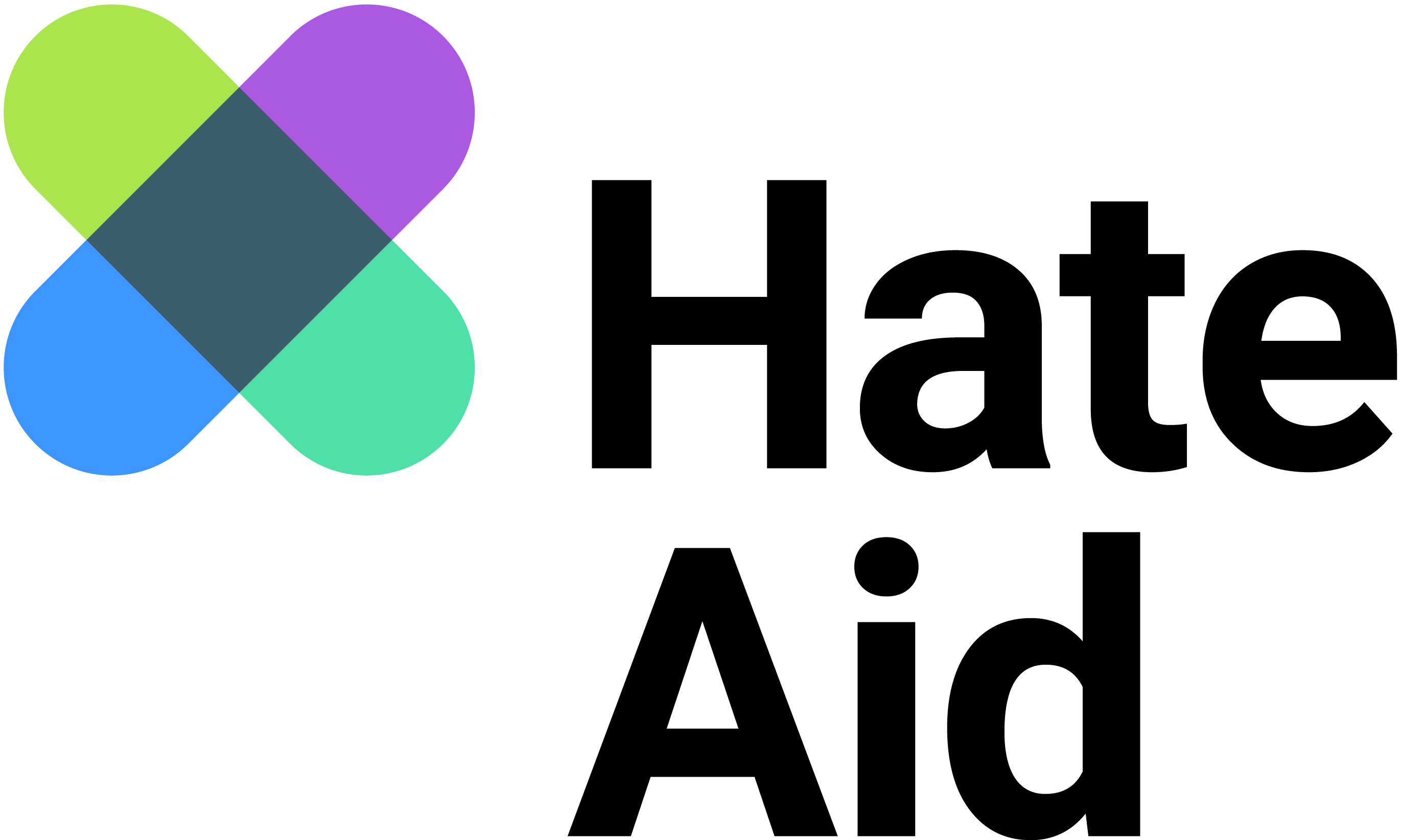All about the project 'Safe to engage'
Protecting politicians and activists from hostility
Whether members of the Bundestag, climate activists or local politicians – those who are committed to our society are often affected by digital violence. These attacks leave their marks: many adapt their style or think carefully about what they say and share in public.
Others wonder whether they should still take on visible, responsible roles such as mayor or spokesperson for an initiative – or whether they should withdraw from political work altogether. In this way, digital violence is changing how people stand up for our society.
We counter the increasing hostilities and threats with the project “Safe to engage: securing democratic voices online“. The goal: to protect politically active people from insults, death threats and other forms of digital violence. In this way, we want to improve the framework conditions for all those who are committed to our society.
Our research findings
Under attack & abandoned
of all politically engaged people surveyed reported hostility on the internet.
of those who were digitally abused also experienced analogue violence. The violence does not stay on the internet.
of affected women reported gender-specific violence such as hatred of women and misogynistic statements.
Hostility against women in politics
The study makes it clear that women are not only more often (63%) affected by digital violence than men (53%), but also in a more sexualised manner. The hostility directed against them was often personal and misogynistic. A similar picture emerged in the analogue space: almost every second affected woman reported gender-specific and sexual harassment taking place there. This has consequences: almost every second politically active woman affected is already considering consciously not taking a position that is particularly often associated with digital violence. Almost a quarter have already considered withdrawing from their current political commitment.
Danger to our society
Many politically active people would like more support in the face of hostility. 49% of the men surveyed and even 66% of the women surveyed said that they did not feel sufficiently prepared for digital violence and its consequences in terms of their political commitment. Against this background, there is a risk that digital violence will deter people from taking on more political responsibility in Germany. Both politicians and professional groups such as journalists or influencers depend on the internet as a public space.
What we demand
More protection against hatred
In order for everyone in our society to be able to participate without fear of hatred and violence, the federal government, parties and all other decision-makers must urgently take measures to support and protect politically engaged people.
- Internal party contact point for those affected: there is a need for an institutionalised, inner-party contact point for victims of digital violence. The survey shows very clearly that the present contact persons are not perceived as sufficient. This office must be known to party members and equipped with sufficient resources, e.g. to report content, secure evidence and assist with criminal complaints.
- Proactively protect candidates: candidates are usually on their own in the event of hostility. Parties must offer them preventative preparation for hate campaigns and crisis communication basics, as well as provide them with social media screenings and moderation resources during attacks.
- Consistent prosecution: Violence against political figures is not a private problem, but a social one. This should already be countered by the introduction of a new criminal offence (§ 188 StGB). However, the norm does not cover hostility via private message or email, is not applicable to journalists and activists, and is also interpreted very restrictively. Therefore, there is a need for consistent prosecution of hate crimes against politically active people beyond the norm. In these cases, the proceedings must not be discontinued and a reference to private prosecution is out of the question (in accordance with No. 86 RiStBV).
- Enforcement of EU digital legislation: According to the EU’s Digital Services Act, platforms are obliged to minimise risks for public debate and elections. Among other things, by adapting their algorithms and moderating content. This means that politicians, for example, must be particularly protected from organised attacks and disinformation campaigns, especially immediately before and during elections, and that violence must not be amplified algorithmically.
What we intend to do
How we support commitment
- Generate data: With our research partners Technical University of Munich and the Blavatnik School of Government at the University of Oxford, we are creating new scientific findings in the field of digital violence against politically active people.
- Empowering the committed: We support and strengthen (aspiring) politicians with an empowerment programme.
- More awareness: Through campaigns and public outreach, we raise awareness about digital violence against politically engaged people.
- Driving political change: We advocate for improvements in legislation and law enforcement, on platforms and in civil society, to protect politically active people at national and EU levels.
Scientific basis
Interlocking of civil society & science
What is special about the project is that civil society and science work closely together.
As a scientific basis, the Blavatnik School of Government at the University of Oxford has prepared a research report on behalf of HateAid.
With a focus on the situation of women in politics, the report “Strengthening democracy by reducing threats to women in politics” summarises existing laws and options for protecting female politicians worldwide for civil society, research and politics. International research shows that women are particularly affected by hostility. The findings from the report serve as the basis for the empowerment programme as well as our political demands and campaigns.
Insults acceptable to many
YouGov survey
In order to get a clearer picture of hostility against women in politics, HateAid had a representative survey conducted by YouGov in 2024. This paints a shocking picture. It is true that an overwhelming majority (86 percent) would like to see respectful interaction with each other – also on the internet.
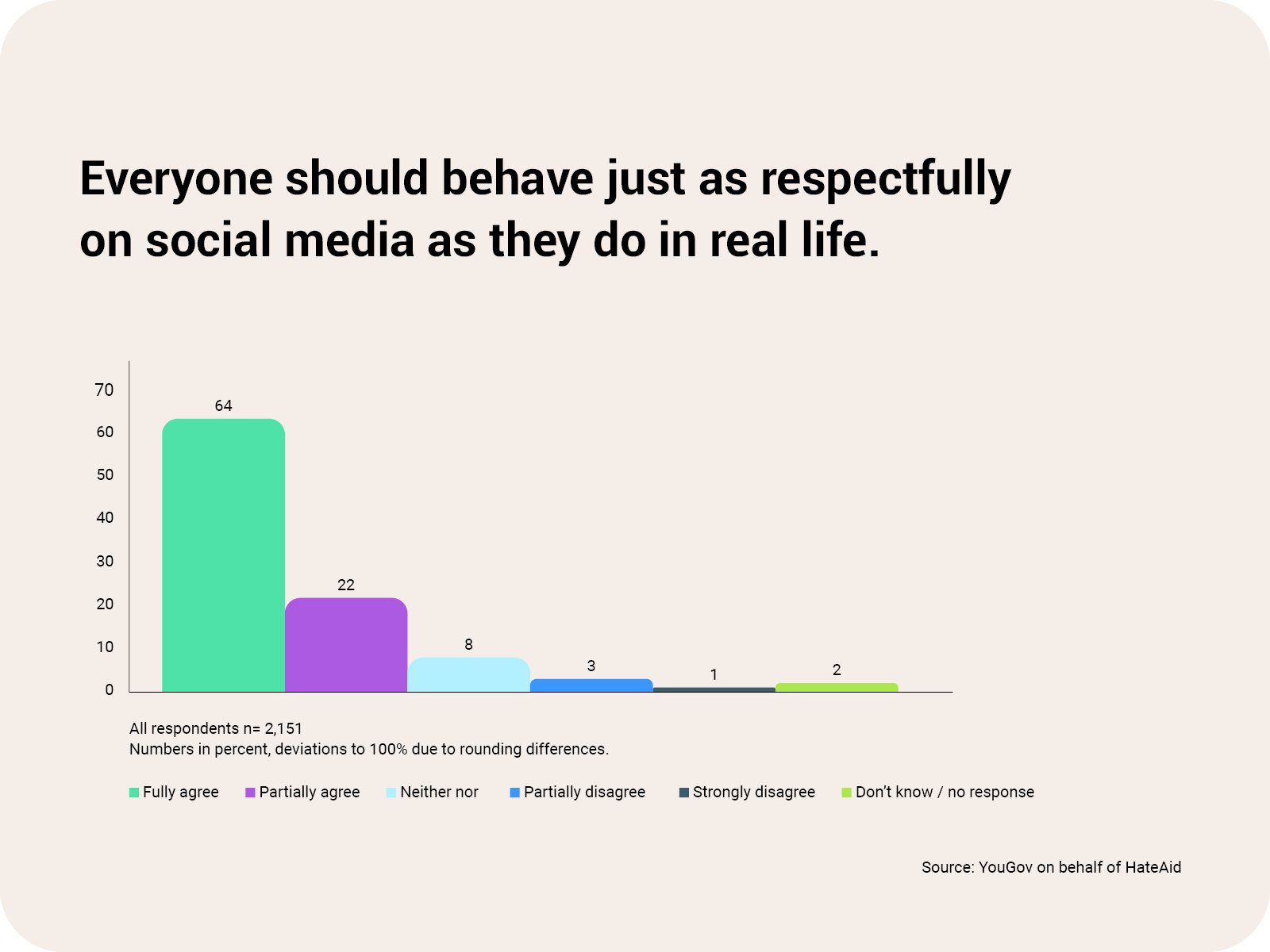
But when it comes to respect for women in politics, things suddenly look very different.
43 percent think that politically active women have to endure hostility online, because it is part of the job.
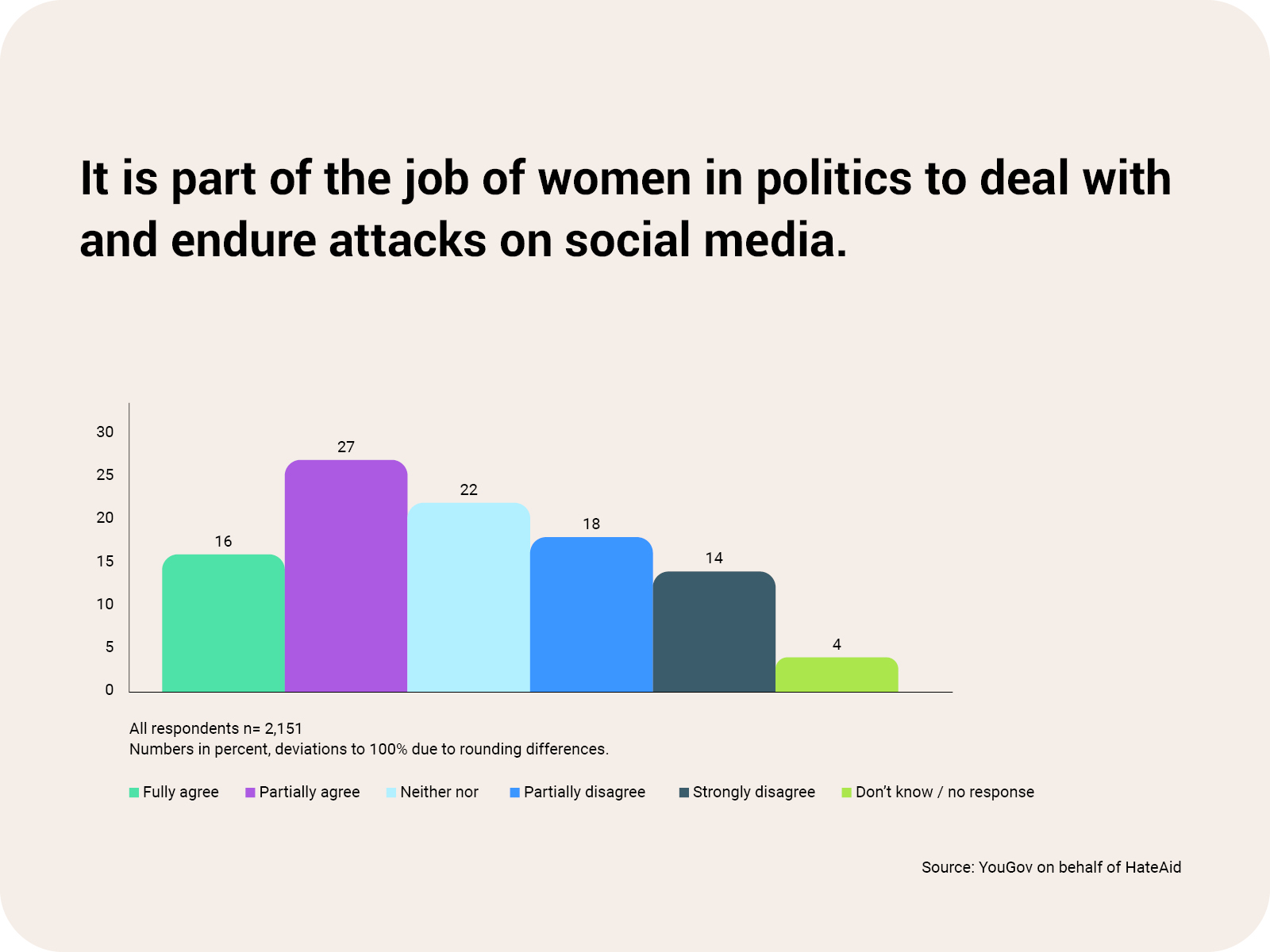
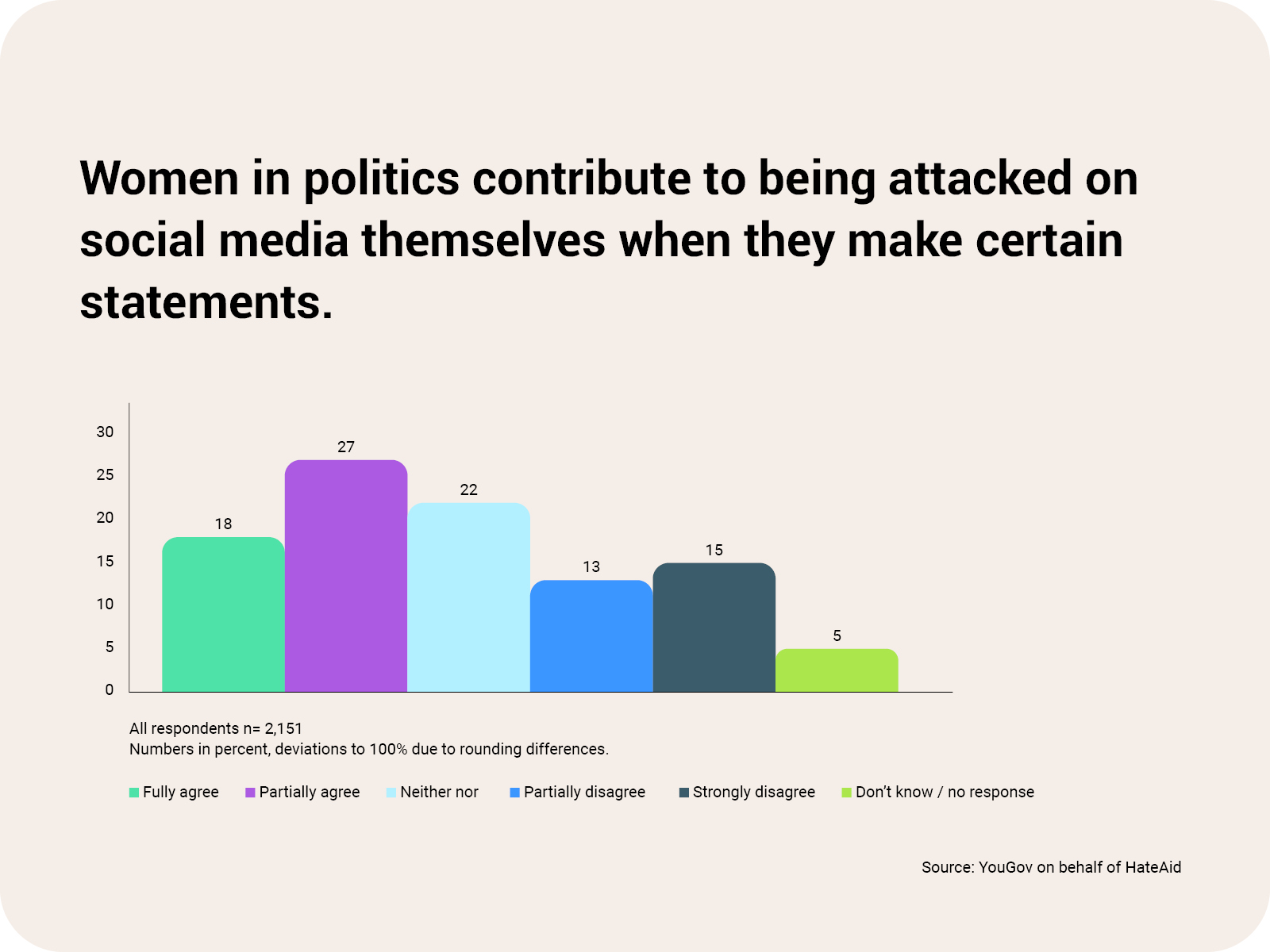
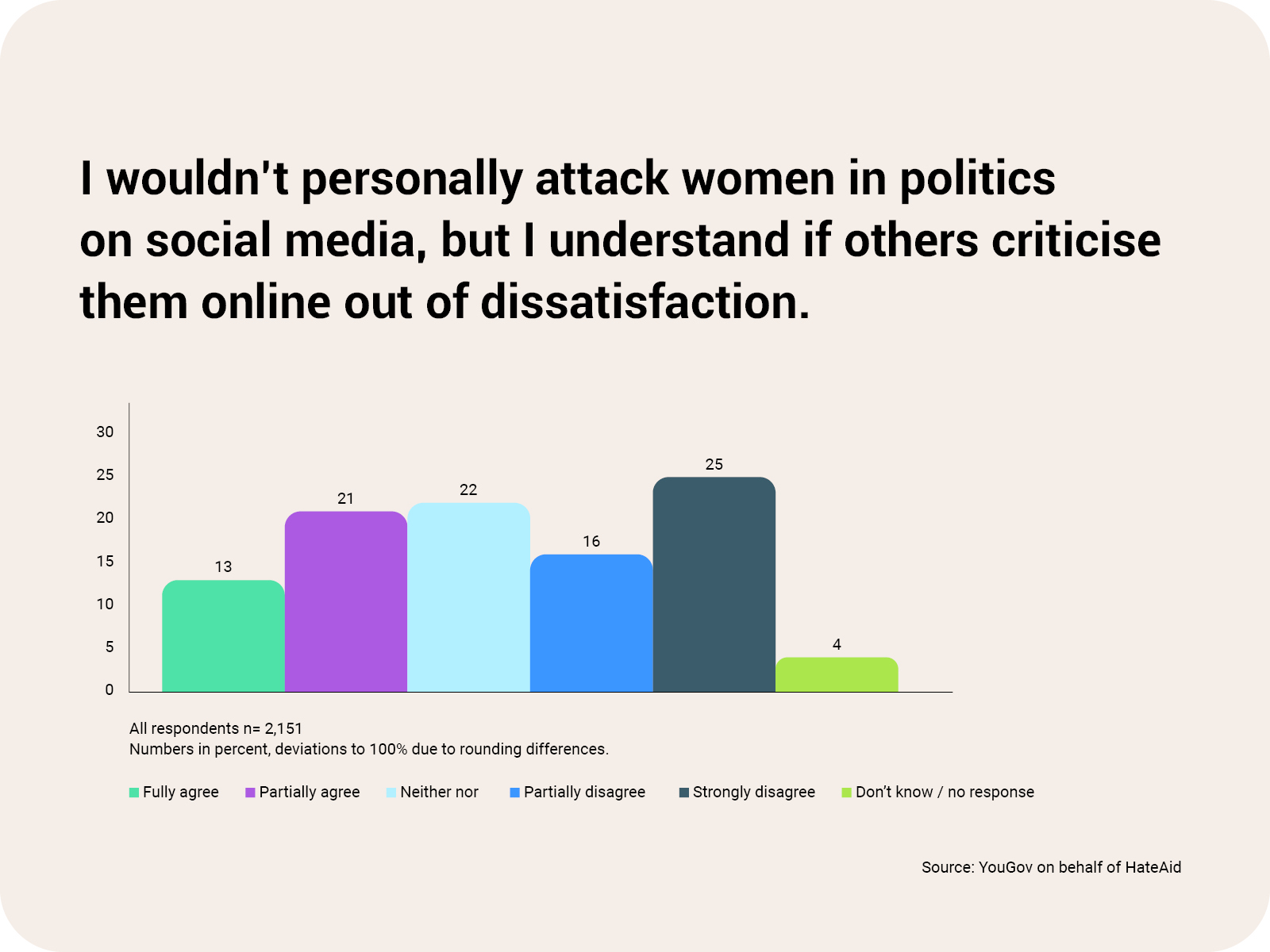
The data used is based on an online survey conducted by YouGov Deutschland GmbH, in which 2,151 people took part between 16 February and 20 February 2024.
The results were weighted and are representative of eligible voters in Germany.
All of the above results were queried on a scale of five (“Fully agree” – “Strongly disagree”) with an additional fallback category. The above results summarise the respective proportions for “fully agree” and “partially agree”.
Consequences for our society
A threat to our democracy
It takes an effort by society as a whole to protect political engagement. If we do not take comprehensive action against digital violence now, the future of political engagement in Germany is at risk and thus an essential pillar for the existence of our representative democracy.

Copyright: HateAid
‘The protection of politically engaged people is crucial for our democracy. Digital violence not only threatens the safety of the politically active persons concerned and their families but also undermines the fundamental right to engage in politics freely and without fear.
By advocating for protection against online harassment, we promote a strong democracy and a fairer society for all.’
Anna-Lena von Hodenberg, HateAid CEO
Our democracy will only function well when everyone can participate in public discourse and feel secure while doing so. This is what we aim to contribute to with “Safe to engage: securing democratic voices online“.
